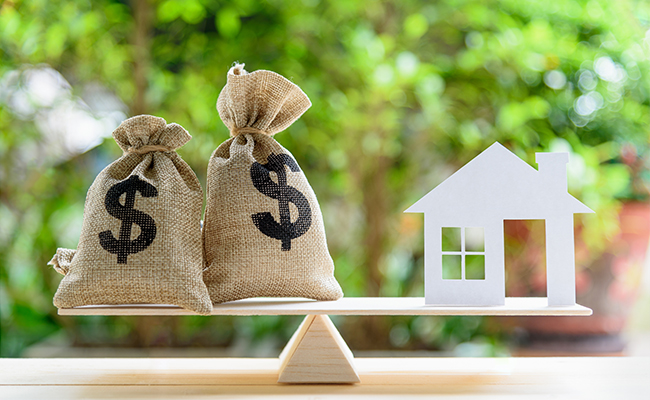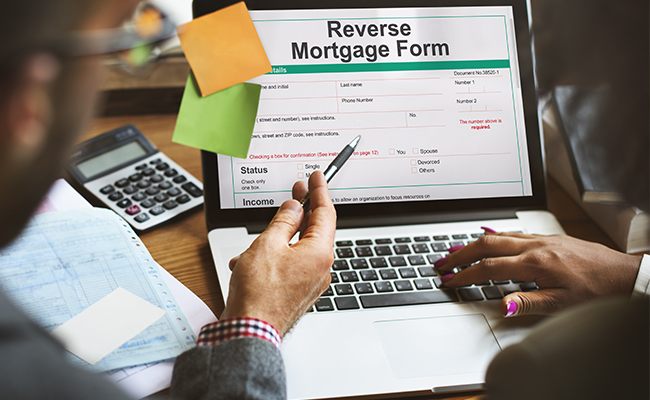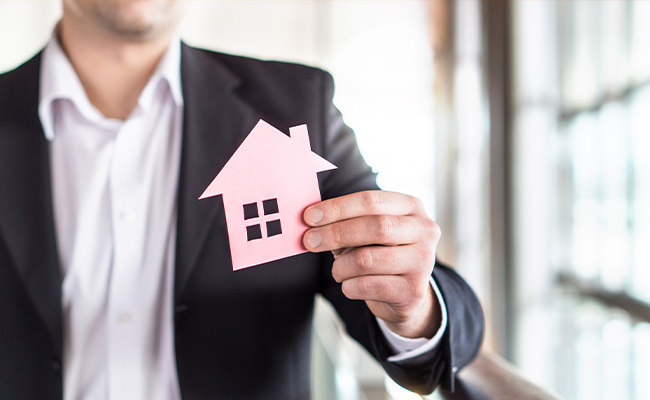What Is a Reverse Mortgage? Explained
You may have heard an advertisement before on the radio, watched a commercial on television, or even seen something online or in a newspaper about getting a reverse mortgage. Even if you are well aware of what a mortgage is, it might have left you wondering what the reverse part means.
In this article, we will clearly understand what a reverse mortgage is, how it works, and the key details to help you determine if it’s the right choice for your future.
What is a Reverse Mortgage?
The straightforward definition of a reverse mortgage is money that a homeowner borrows against the equity in their home. You can receive a certain amount of cash, depending on your eligibility. That can be monthly payments, a line of credit, or a lump sum given to the borrower by the lender.
Additional Information on Reverse Mortgage
The difference is you already have to own your own home. The loan proceeds can help pay for living expenses or travel. There are different programs – some require you to repay the loan, while others take possession of your home when you pass away.
A reverse mortgage is a home loan available to homeowners aged 62 or older. It allows them to convert a portion of their home equity into cash. While the homeowner has no obligation to make monthly mortgage payments, the loan balance increases over time. Instead, the homeowner must pay property taxes, homeowners insurance, and home maintenance costs.
Reverse mortgage proceeds can be received differently, including as a lump sum or in equal monthly payments. There are different types of reverse mortgages, including Home Equity Conversion Mortgages (HECMs) and proprietary reverse mortgages. It’s important to be cautious of reverse mortgage scams and consult a HUD-approved housing counselor for guidance.
How Does a Reverse Mortgage Work?
Unlike a traditional loan, when you are approved for a reverse mortgage, the lender will send you monthly payments instead of making monthly mortgage payments for the loan. No installment is due back to the lender once the home is sold or the owner passes away. You are still responsible for paying the insurance and taxes on the property, but other than that, there is no bill.
Interest accumulates throughout the loan. It is continually added along the way. You owe the entire mortgage amount, including interest, when you no longer possess the home due to either selling it or passing away.
Do I Qualify for a Reverse Mortgage?
Before considering a reverse mortgage, you should know whether or not you have all the essential constituents to qualify. The requirements aren’t stringent, but they have a set of standards that must be followed so that they can match the guidelines set forth by the government and the Department of Housing. The lender also has to protect themselves through these basic rules.
- You must be 62 or older before applying for a reverse mortgage loan.
- You must own your home, and it has to be your primary residence.
- The home has to be in good condition.
- Manufactured homes, single-family homes, multi-family homes of four or fewer, and some approved condominiums are the only residences that lenders will consider accepting for assets.
- Either you already own your home entirely outright, or you don’t have much left to pay on it, and the majority of the equity is yours.
Before approving your loan, you can expect to receive financial counseling to determine if it is the best option for you. Additionally, you will be provided with information about your alternative options.
How Much Can I Borrow?
You cannot borrow more money than what your home is worth. However, if, for some reason, the house gets sold for less than what it’s valued at and more than the initial loan given, you’re not responsible for that shortage. For example, say your home is valued at $200,000, so that’s what you borrow from the bank. When the home is sold, it goes for $175,000. You wouldn’t owe the bank that additional $25,000.
On the other hand, if your home was worth $200,000 and sold for $250,000, the bank only gets the original $200,000 borrowed. The remainder of $50,000 will go back to you or in the estate. Determining the amount you qualify to receive will depend on various factors, such as your age, the appraised value of your property, and the interest rate offered to you.
A 75-year-old homeowner will likely get more money than a 62-year-old. The older you are, the more money you get. If your home is worth more, you will be approved for more, and a lower interest equals more money.
The numbers are something that a professional lender can quickly calculate and let you know the exact dollar amount that they can give you when you go in and see them.
You May Also Like: How to Use a Mortgage Rate Calculator Refinance
Reverse Mortgage Benefits and Fees
The primary benefit of a reverse mortgage is that it doesn’t have to be paid back until you pass away. The last living homeowner has to pay it back if there is more than one person on the loan. You will get the money you need while alive and use the house until you die. After your passing, the bank sells your home and settles the debt.
If the property is sold for more than its appraised value, the beneficiaries of your estate receive the additional cash. If it goes for less, the bank must soak up its loss.
You May Also Like: How to Get a Home Equity Line of Credit?
Generally, three different fees get attached to reverse mortgages that are relatively similar to traditional loans. First, you’ll have to pay an origination fee of between $2,500 and $6,000. They calculate your exact amount by the first $200,000 value of the home at 2%. Anything that falls above that is then subjected to it at 1%. If your house is worth $200,000, you pay $4,000 in origination fees.
You will also incur charges for title fees, inspection fees, and home appraisal fees. These tasks must be performed so that the lender can ascertain the value of your home. This is done so they know how much of a loan they can offer you. These fees are commonly known as third-party fees.
FHA charges a one-time 2% fee for your upfront mortgage insurance premium (MIP) on all reverse mortgage loans. If your loan is still out, you’ll continue to be charged that same MIP. However, it will be at the rate of 0.5% annually of the loan balance. Keep in mind that the loan amount will increase over time due to the accrued interest. Additionally, the MIP owed will also go up. The MIP is often wrapped into the mortgage balance, so you won’t have to worry about paying that amount out of your pocket.
Is Reverse Mortgage Right for Me?
When deciding if a reverse mortgage is right for you, there are several questions to ask yourself.
- Are you 62 or older?
- Do you need to supplement your retirement income?
- Do you plan on staying in the same home for a long time?
- Have you tried for a home equity line of credit and been turned down?
- Is the money from a reverse mortgage part of your financial plan for the future?
After asking yourself those questions, you have to start looking at the bigger picture before making a final decision. For instance, will someone be left in the house when you pass away? The person left with the house must pay the loan to stay or move out and let the bank take the home.
You May Also Like: How to Pay Off Debt: 10 Ways to Kill Debt with a Low Income
Conclusion
Remember that whatever property you loan out must be your primary residence. If you plan on moving to a warmer climate for most of the year, it won’t work. An expert in reverse mortgages will carefully review all these details once you apply for the loan.
A reverse mortgage, also known as a home equity conversion mortgage (HECM), is a type of loan that allows homeowners aged 62 or older to convert their home equity into cash.
Instead of making monthly payments to the lender, the borrower receives funds as a lump sum payment, monthly payments, or a line of credit. The loan balance increases as interest accrues while the home equity decreases. The borrower remains responsible for property taxes, homeowners insurance, and home repairs. FHA-approved lenders provide reverse mortgages. Additionally, the Federal Housing Administration (FHA) insures this.
FAQs
Can I qualify for a reverse mortgage if I still have a mortgage on my home?
Yes, it is possible to qualify for a reverse mortgage if you have an existing mortgage on your home. However, you must pay off or satisfy the existing mortgage using the proceeds from the reverse mortgage. The reverse mortgage will be used to pay off the existing mortgage, and any remaining funds can be used as desired by the homeowner.
Are there any alternatives to a reverse mortgage for accessing home equity?
Yes, there are alternatives to a reverse mortgage for accessing home equity. Some alternatives include home equity loans or lines of credit, which allow homeowners to borrow against the equity in their homes while still making monthly payments. Another option is downsizing or selling the house and using the proceeds to supplement retirement funds. Considering these alternatives and comparing them to a reverse mortgage is essential to determine the best option for your specific needs and circumstances.
What are the benefits of a reverse mortgage?
Reverse mortgages offer several benefits. First, they provide a source of tax-free income for retirees, allowing them to supplement their retirement funds or cover unexpected expenses. Secondly, reverse mortgages provide flexibility in receiving the loan proceeds, offering options such as a lump sum, monthly payments, or a line of credit. Additionally, reverse mortgages offer the chance to stay in the home without making monthly mortgage payments, as long as the homeowner meets the loan requirements.
Published on June 6, 2019; Updated on June 20, 2023.
Sponsored Advertising Content:
Advertorial or Sponsorship User published Content does not represent the views of the Company or any individual associated with the Company, and we do not control this Content. In no event shall you represent or suggest, directly or indirectly, the Company's endorsement of user published Content.
The company does not vouch for the accuracy or credibility of any user published Content on our Website and does not take any responsibility or assume any liability for any actions you may take as a result of reading user published Content on our Website.
Through your use of the Website and Services, you may be exposed to Content that you may find offensive, objectionable, harmful, inaccurate, or deceptive.
By using our Website, you assume all associated risks.This Website contains hyperlinks to other websites controlled by third parties. These links are provided solely as a convenience to you and do not imply endorsement by the Company of, or any affiliation with, or endorsement by, the owner of the linked website.
Company is not responsible for the contents or use of any linked website, or any consequence of making the link.
This content is provided by New Start Advantage LLC through a licensed media partnership with Inquirer.net. Inquirer.net does not endorse or verify partner content. All information is for educational purposes only and does not constitute financial advice. Offers and terms may change without notice.







